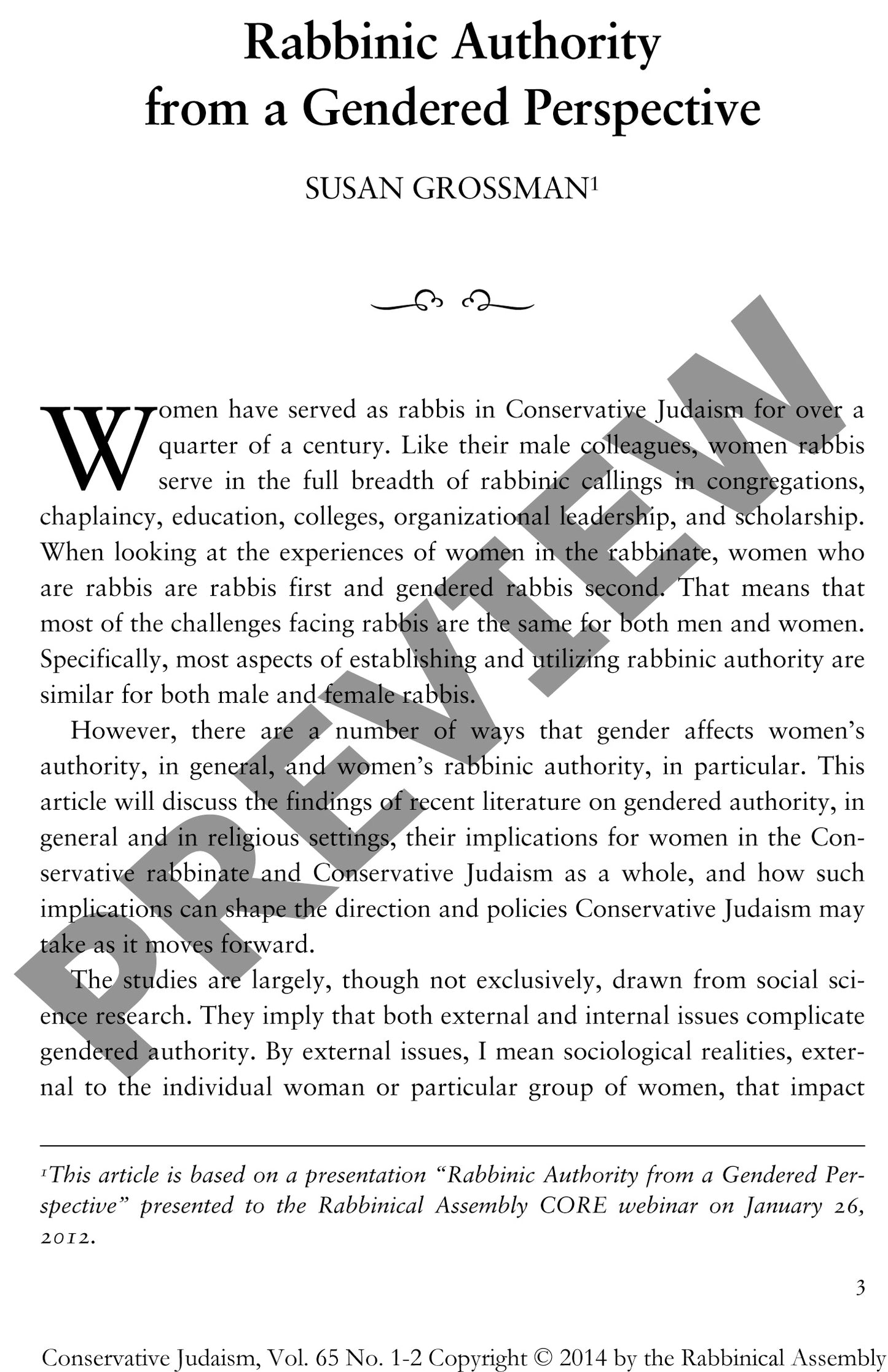Rabbinic Authority from a Gendered Perspective
Couldn't load pickup availability
Despite serving as Conservative rabbis for over twenty-five years, women continue to face persistent gender disparities in placement, advancement, and compensation - with discrimination paradoxically increasing as more women enter the field. Social science research reveals three primary complications identified in tokenism studies: heightened performance pressures requiring women to work harder than male colleagues, social isolation with limited peer support, and role encapsulation channeling women into lower-status positions in chaplaincy, education, and smaller congregations. External barriers include automatic gender processing that views men as more competent, gender-specific transference patterns that cast women rabbis in maternal rather than authoritative roles, and cognitive dissonance between traditional masculine imagery of God and female religious representatives. Organizational theories predicting diminishing gender disparities over time have proven incorrect in Conservative Judaism's rabbinic leadership. The research proposes institutional solutions including enhanced mentoring programs, consistent use of gender-neutral liturgical language, and advocacy for wage equity, while recommending that individual women rabbis adopt traditional ritual garb and develop effective communication strategies to enhance their authority. These findings demonstrate that comprehensive institutional change, rather than individual efforts alone, is necessary to achieve true gender equality in Conservative rabbinic leadership.

More Information
-
Physical Description
-
Publication Information
Published 2013-2014
ISBN
-
Publication Credits

